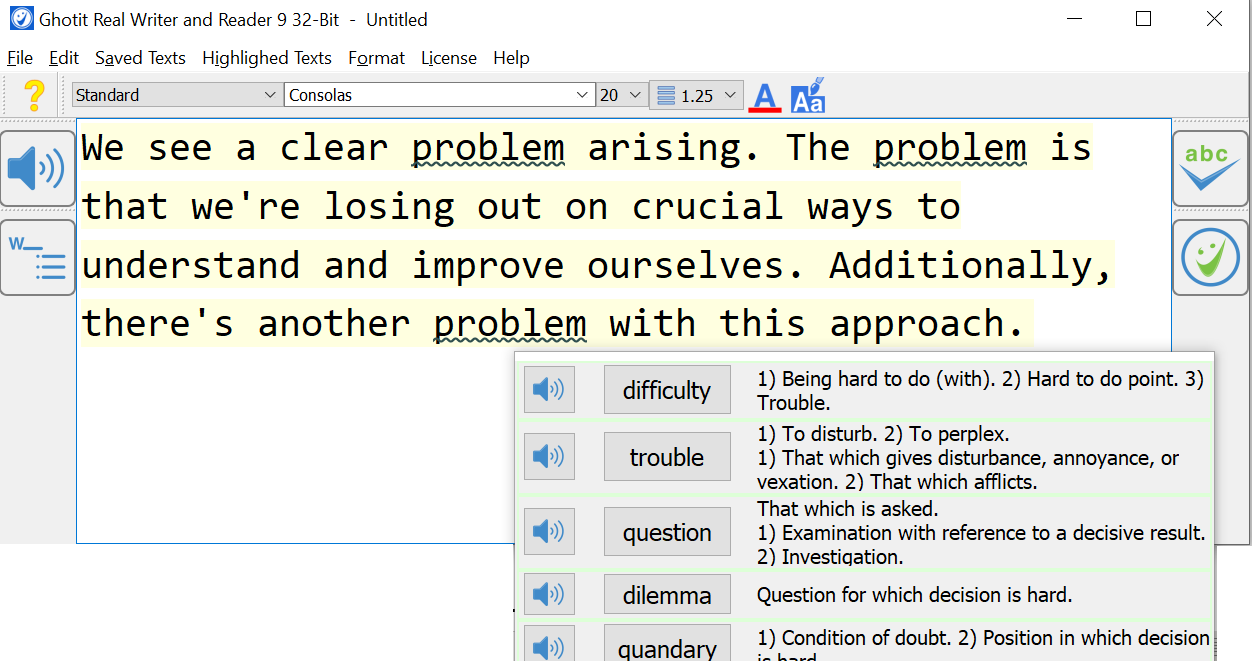Quite frequently you meet impressive people, ideal partners for discussions, who manage to expressive their views using rich vocabulary, who know how to fit the exact terms to their views, best partners for exchanging views. You send them an email and, and, surprise, surprise, their response exhibits poor choice of words, misspelled terms, awkward syntax. You ask yourself, how come? Was I misled by his or her discourse? Well, the answer is no, your first impression was right. He or she is not dumb. He or she suffer from a common disability, dyslexia and/or dysgraphia.
Quite frequently dyslexics show a blunt mismatch between written and verbal abilities.
What explains this mismatch? This selective retrieval? The main reason for this phenomenon is quite trivial, this person uses a subset of his vocabulary, those words he or she spells correctly.
By offering a set of alternative terms Ghotit assists you, the dyslexic or dysgraphic, to expand your writing vocabulary and thereby demonstrate your real capabilities.
In the above example the writer is using the word problem 3 times. Ghotit offers five terms to the term “problem” helping you replace it in fit with text context.

